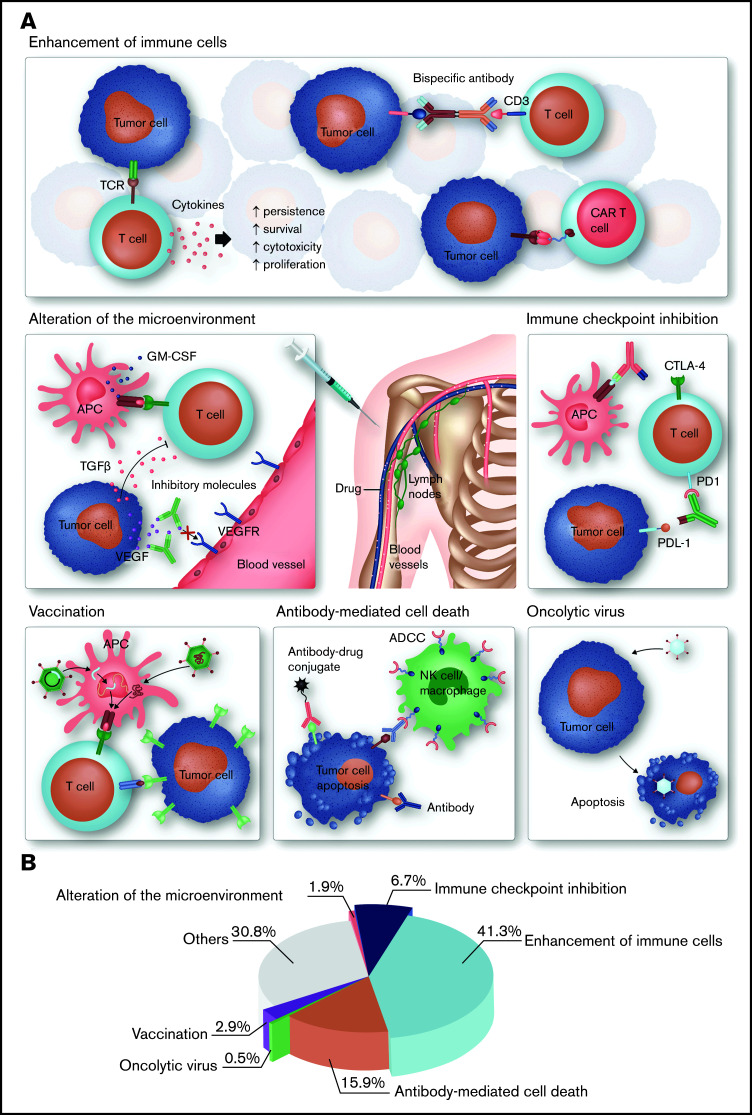Figure 1.
Different strategies of immunotherapy in hematology. (A) Each type of immunotherapy differently affects the immune system. ADC, OV, and T cells engineered with a tumor antigen-specific TCR or CAR directly mediate an antitumor response, whereas cytokines, bispecific antibodies, immune checkpoint blockade, and therapeutic cancer vaccines stimulate endogenous immune pathways and thus indirectly induce a therapeutic effect. More specifically, immune stimulatory cytokines, such as IL-2 and interferon-α, are used to enhance the proliferation, cytotoxicity, persistence, and survival of T cells. Bispecific antibodies function as essential link between tumor cells and T cells mediating T-cell activation and tumor cell lysis. Another strategy to enhance tumor cell recognition is the ex vivo engineering of patient T cells with a CAR. Immune evasion is a common feature of tumor cells. Antibodies targeting immune checkpoints can prevent exhaustion of cytotoxic T cells and thus improve antitumor immunity. OV specifically infects tumor cells, which result in ICD. The binding of mAbs to tumor cells leads to activation of the innate immune system and tumor cells destruction. An advancement is ADCs, which specifically bind to tumor cells and induce cell death after internalization because of their cytotoxic conjugate. Therapeutic cell-based, peptide-based, or gene-based cancer vaccines induce tumor-antigen presentation by APC to boost a specific and long-lasting antitumor immune response. Antibodies or small molecules are used to neutralize immunosuppressive, tumor-derived soluble factors, such as TGF-β, IL-10, or VEGF, and thus ameliorate antitumor immunity. (B) Articles published in Blood Advances on immunology and immunotherapy in the period from November 2016 to April 2020 were classified as indicated. Most of these articles focus on cell-based immunotherapies, ICIs, and mAbs, which is in accordance with their major clinical relevance in hematology. GM-CSF, granulocyte-macrophage colony-stimulating factor; TGF-β, transforming growth factor-β; VEGF, vascular endothelial growth factor. Professional illustration by Somersault18:24.

